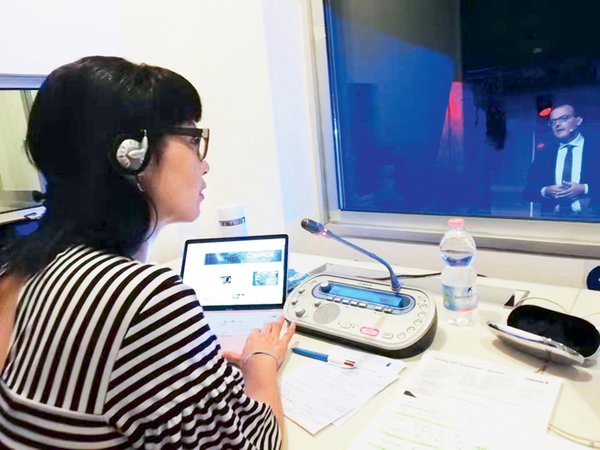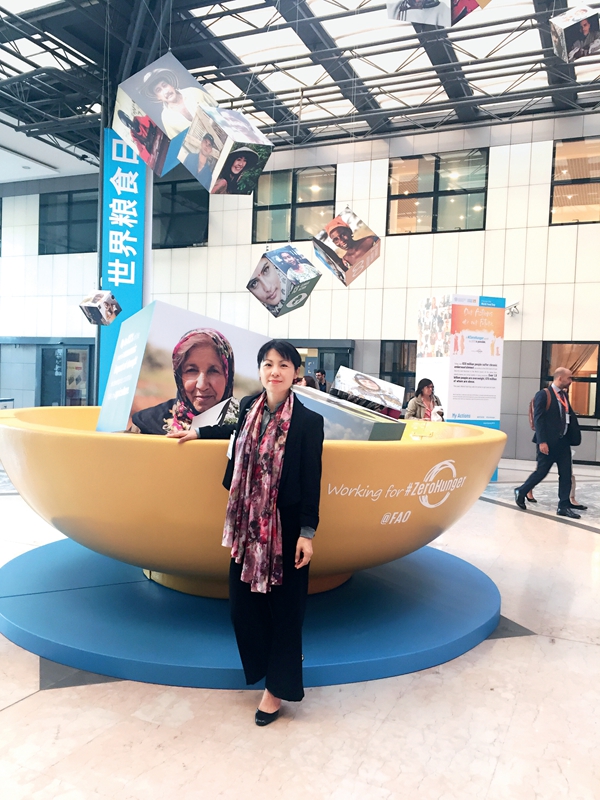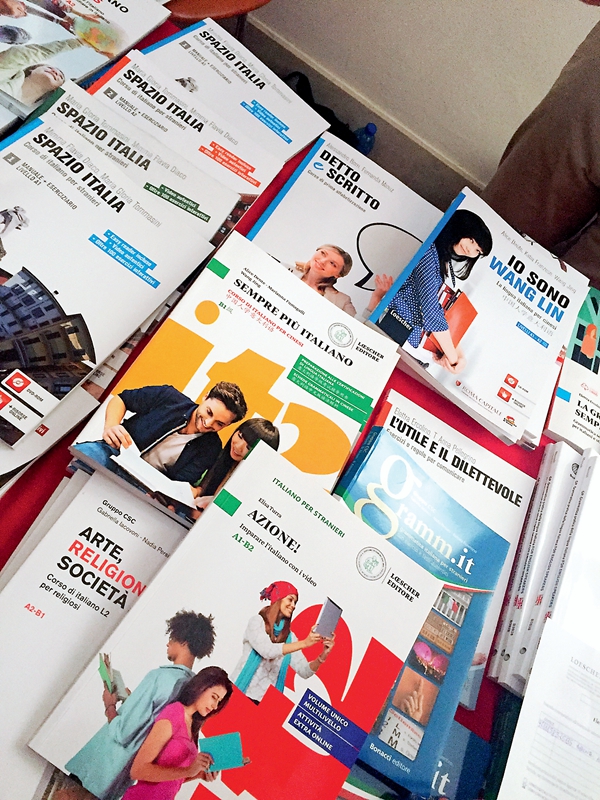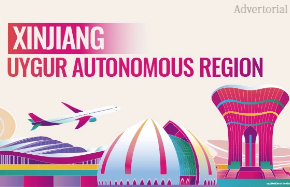Moved by 'close contact'


Wang Jing, who moved from China to Italy in 2000, has lived in Italy for nearly two decades. She is a professional interpreter. She also teaches Italian, Chinese, interpretation and translation courses. She believes "communicate" with her students is the best teaching method. She looks at things from her students' viewpoints, and she helps her students grasp efficient studying methods. Since the beginning of this year, Wang has been moved by the joint efforts made by people from China and Italy in the fight against COVID-19 (novel coronavirus disease). Despite living in different cultural backgrounds, she says people-to-people connectivity is an important strength in combatting the disease.
Before she moved to Italy, Wang worked for an international company, which gave her opportunities to meet Italians and to form an impression of the Italian language. "Italian impressed me as a 'musical' language, which has beautiful tones and rhymes. Italian people have vivid gestures and facial expressions when they talk. They are particularly fond of coffee, and they have 'coffee break' during work hours. I met my husband, Pietro, who worked in the same company, when we were both in China. We married and relocated to Italy after his contract with the company in China ended," Wang says.
After she decided to start a new life in Italy, Wang was determined to continue studying the Italian language. "Language is a key to better understanding another country and its culture," she says.
Passion to learn Chinese
From 2012 to 2018, Wang helped compile two textbooks to teach Chinese the Italian language, and one textbook to help Italians learn practical Chinese grammar. "When I teach, instead of directly giving 'fish' to my students, I prefer to teach them efficient 'fishing' methods, so they grasp the methods to learn things," Wang says.
Wang has had many remarkable experiences with her students. "I had a female postgraduate student who once gained the score 28 on an interpretation test (the full score is 30). Her score was quite good for the course. But the student insisted that she would retake the test after three months, because she wanted to get a full score. She spent her whole summer vacation preparing for the second test, and she eventually achieved the full score."
Wang says she is often touched by her Italian students' passion to learn Chinese. "For example, I had a student, a retired man above 60, who practiced writing Chinese characters on a notebook. Like most Chinese pupils, who write characters in grids divided by lines, the elderly student drew grids on his notebook, and he wrote each character carefully to fit into a grid. His serious attitude and great concentration impressed me," Wang explains.

Cherishing contacts
This year marks the 50th anniversary of the establishment of diplomatic relations between China and Italy. During the fight against COVID-19, experts and medical workers from China and Italy have communicated a lot, to exchange information and possible treatment methods to combat the disease. After the outbreak of COVID-19 in Italy, three groups of Chinese experts visited Italy, in March, to support the European country's efforts in combating COVID-19. Wang witnessed experts and medical workers' contributions in the fight against the disease.
"The experts from China visited Red Cross societies, hospitals and some government organs to offer support. They also provided online diagnoses and training to Chinese living in Italy, and to medical workers here. I remembered the first group of experts included someone from Wenchuan, which was ravaged by a magnitude-8 earthquake in Southwest China's Sichuan province in 2008. At that time, medical workers from Italy visited Wenchuan to help with quake-relief efforts. The friendly exchanges between Chinese and Italians, who work in the medical-care field, remind me of a statement about people-to-people connectivity. That is, 'Friendship, which derives from close contact between the people, holds the key to sound state-to-state relations'," Wang says.

During the quarantine period, from March to May, many people in Italy joined the "concert on the balcony," held normally at 6 p.m., when people played music on the balconies of their houses to communicate with their neighbors. "It was a Saturday after the first group of Chinese experts arrived in Rome, a Chinese student in the city recorded a special 'concert,' when residents in a community played the national song of China," Wang recalls. She says she was moved to tears by that unforgettable experience.
Since the COVID-19 outbreak, many Chinese, including social groups composed of Chinese, donated masks to hospitals, local institutions and residents in their communities to help combat the disease. Wang volunteered to translate documents and instructions about medical treatments, equipment and related products. "I know a number of professionals who work in the field of translation and interpretation -- be they Chinese or Italian, young or old -- and who have volunteered to translate materials that are helpful for experts and medical workers. Although we are from two countries, which have different cultural backgrounds, we are closely connected by our efforts together to combat the disease," Wang says.
She cherishes the precious contacts between people in China and Italy. Wang says she hopes the pandemic will eventually end, and that people in both countries will breathe freely and embrace warm sunshine again.

























